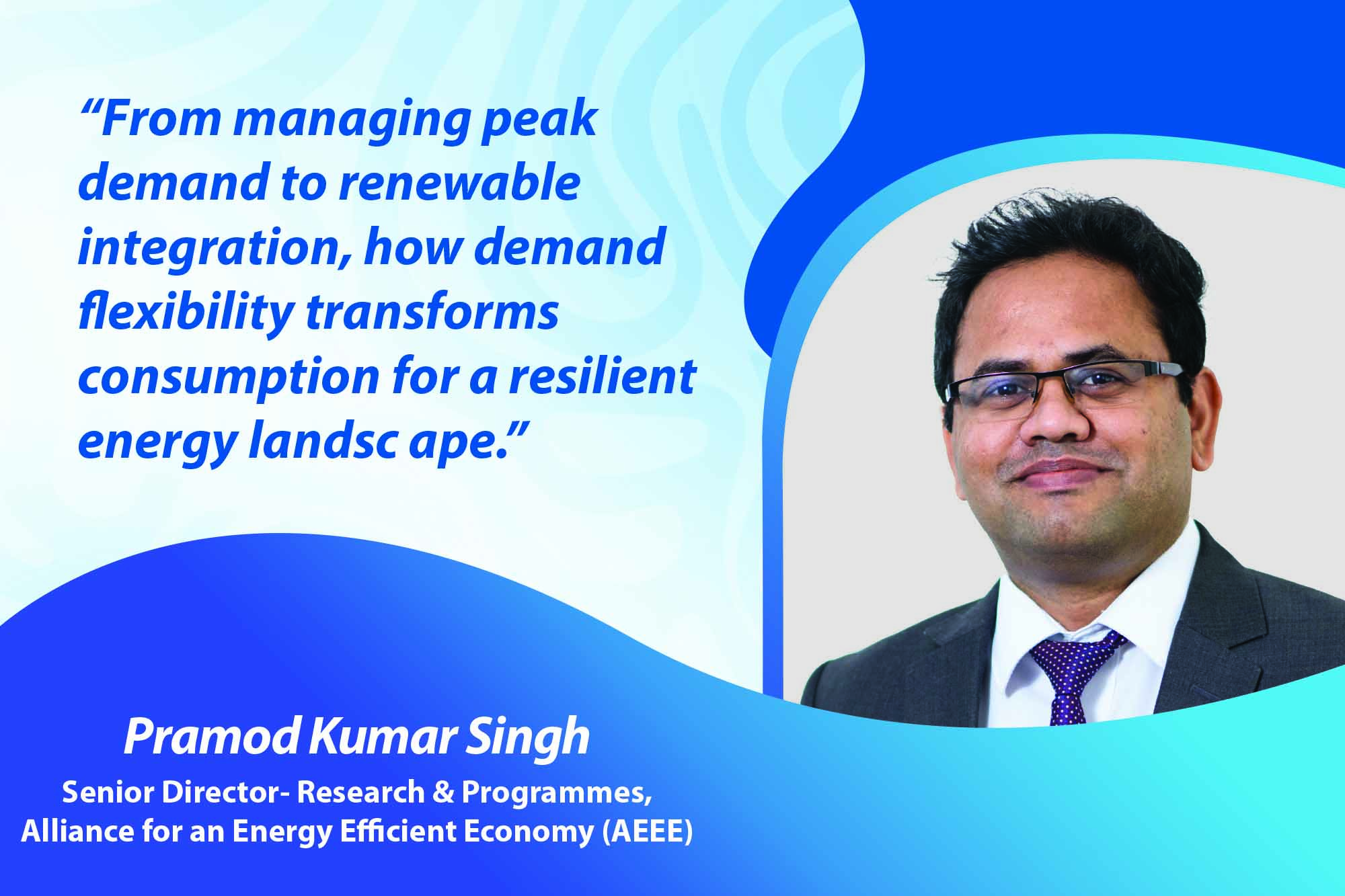Unlocking the power of demand flexibility for a greener energy future
By EPR Magazine Editorial June 25, 2024 5:52 pm IST
By EPR Magazine Editorial June 25, 2024 5:52 pm IST

From peak demand to renewable integration, how flexibility transforms consumption for a resilient energy landscape.
In today’s energy landscape, the focus is shifting towards demand flexibility as a pivotal strategy for optimising electricity usage. Unlike traditional demand response, which primarily addresses peak demand scenarios, demand flexibility encompasses the ability of consumers to adjust their electricity consumption patterns in response to various signals such as pricing, tariffs, and grid conditions. This adjustment can involve reducing and increasing consumption, thereby making the demand more adaptable throughout the day, not just during peak times.
The need for demand flexibility arises from the increasing complexity of our energy grid. Over the past decade, peak electricity demand in India has grown significantly, with projections indicating an 80 per cent increase by 2032. Concurrently, integrating variable renewable energy sources like solar and wind power poses challenges to grid stability and reliability. These sources contribute about 30 per cent of the electricity mix, introducing variability that demands flexible responses from the grid.
The concept of demand flexibility extends beyond mere cost reduction. It plays a crucial role in enhancing grid reliability, managing network congestion and facilitating the integration of green energy sources. By enabling consumers to adjust their electricity usage based on grid conditions or the availability of renewable energy, demand flexibility not only optimises supply but also helps stabilise electricity costs for consumers.
Several countries globally have embraced demand flexibility at scale. Countries like Australia, Belgium, and the United States have integrated demand flexibility into their energy markets, moving beyond pilot projects to mainstream implementation. These initiatives demonstrate the feasibility and benefits of leveraging demand flexibility for grid management and cost efficiency.
In India, the journey towards demand flexibility has been marked by policy initiatives and pilot projects across both public and private sectors. These efforts aim to manage peak demand optimise renewable energy utilisation, and improve overall grid efficiency. Regulatory frameworks across various states now include provisions for demand-side management, incentivising utilities and consumers alike to adopt flexible consumption practices.Looking ahead, the key challenge lies in scaling up these initiatives nationwide. This requires heightened awareness among stakeholders, including utilities and regulatory bodies, about the benefits and methodologies of demand flexibility. Moreover, fostering new business models involving aggregators and exploring capacity markets could further incentivise participation from various consumer segments, including residential users.
Ultimately, the success of demand flexibility hinges on collaborative efforts to streamline regulatory frameworks, enhance technological capabilities, and educate consumers about their role in achieving a sustainable energy future. By empowering consumers to participate actively in managing electricity demand, India can mitigate grid challenges and accelerate its transition towards a greener and more resilient energy infrastructure.
Authored by: Pramod Kumar Singh, Senior Director- Research & Programmes, Alliance for an Energy-Efficient Economy
We use cookies to personalize your experience. By continuing to visit this website you agree to our Terms & Conditions, Privacy Policy and Cookie Policy.